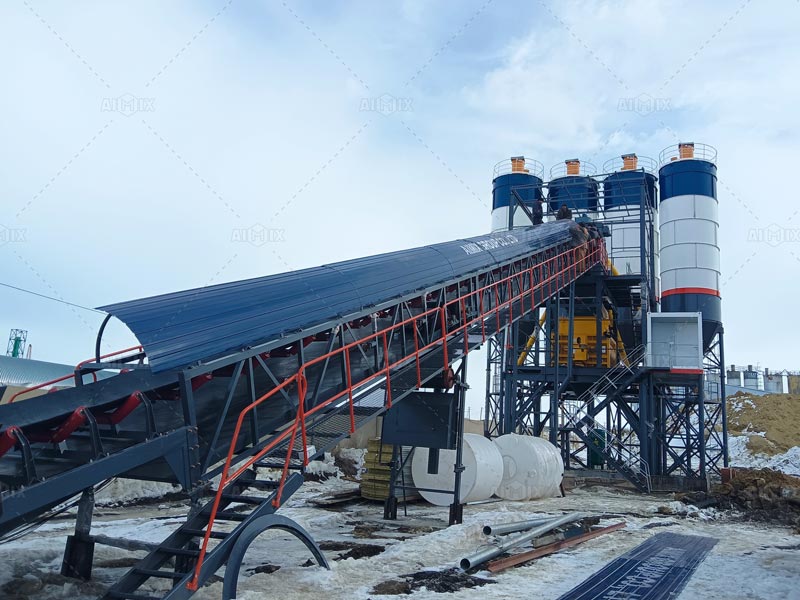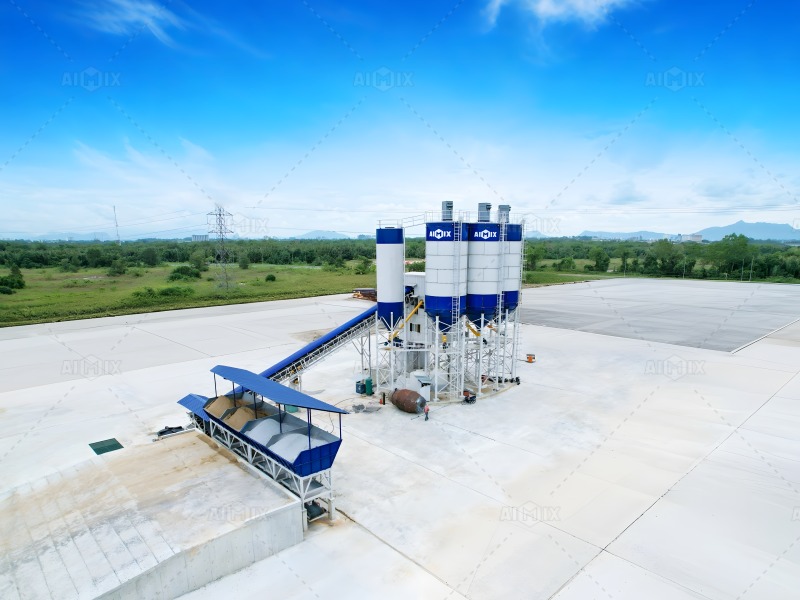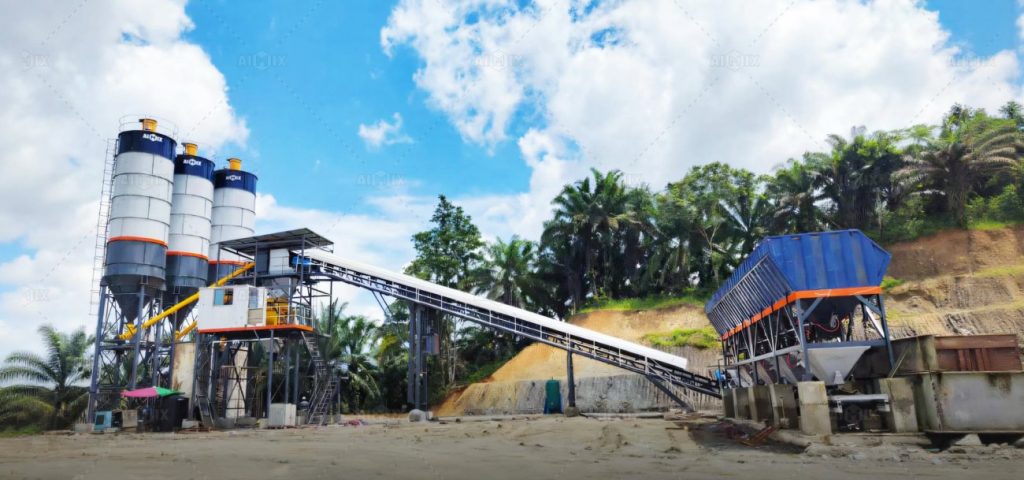In the construction industry, consistent concrete quality is critical for structural integrity, safety, and longevity. Ready mixed concrete (RMC) plants play a vital role in ensuring that every batch of concrete meets the desired specifications. Effective quality control not only enhances construction outcomes but also reduces waste, improves operational efficiency, and optimizes overall costs. For operators and investors, understanding key quality control techniques in ready mixed concrete plants operations is essential, whether using a mobile ready mix concrete plant, managing RMC plant cost, or evaluating a concrete batching mixing plant for purchase or upgrade.

Understanding Quality Control in RMC Plants
Quality control in an RMC plant involves systematic procedures to monitor, evaluate, and adjust production processes to meet precise concrete standards. Unlike traditional on-site mixing, ready mixed concrete plants provide centralized, controlled environments where raw materials such as cement, aggregates, water, and admixtures are measured and blended accurately. This control enables manufacturers to maintain consistency, avoid deviations, and comply with local or international standards.
A concrete batching mixing plant ensures accurate proportioning of materials, uniform mixing, and timely delivery of concrete. Whether stationary or mobile, plants must implement rigorous quality control protocols to achieve desired slump, compressive strength, workability, and durability.
Key Quality Control Techniques
1. Material Quality Inspection
Quality begins with raw materials. Aggregates, cement, and admixtures must meet predefined standards. Aggregates are tested for size distribution, cleanliness, and moisture content, while cement is checked for chemical composition and setting time. Admixtures are evaluated for compatibility and performance. For a mobile ready mix concrete plant, ensuring consistent material quality is even more critical, as mobile operations often source aggregates from different local suppliers.
2. Accurate Batching and Weighing
Precision in batching is fundamental for consistent concrete quality. Modern concrete batching mixing plants employ automated weighing systems that measure each component accurately. Digital control systems allow operators to adjust water-to-cement ratios and admixture quantities, minimizing human error. Accurate batching reduces material waste, ensures uniform concrete performance, and helps control RMC plant cost by optimizing material usage.
3. Mixing Consistency
Proper mixing ensures uniform distribution of cement, aggregates, and water. Both stationary and mobile ready mix concrete plants must maintain consistent mixing times and speeds, according to mix design requirements. Continuous monitoring of mixer operation prevents under- or over-mixing, which can compromise workability and strength.

4. Slump and Workability Testing
Slump tests are commonly performed on fresh concrete to assess workability. Variations in slump indicate inconsistencies in water content or mixing procedures. Regular slump testing during production helps operators make timely adjustments, ensuring that concrete meets project requirements.
5. Compressive Strength Testing
Concrete samples are periodically cast and cured for compressive strength tests. Achieving target strength is critical for structural performance. In high-volume plants, automated sampling and curing systems streamline testing, allowing plant managers to monitor production quality in real-time.
6. Temperature and Environmental Control
Temperature significantly affects concrete hydration and curing. Both stationary and mobile ready mix concrete plants implement measures to control material and mix temperatures. In hot climates, cooling systems or chilled water may be used, while in cold regions, heated aggregates or admixtures help maintain quality. Monitoring temperature variations reduces the risk of cracks, shrinkage, or compromised durability.
7. Record-Keeping and Traceability
Comprehensive documentation is a core component of quality control. Each batch’s material sources, mix proportions, slump, temperature, and test results should be recorded. Traceability allows operators to identify deviations, investigate causes, and implement corrective actions promptly. This system ensures accountability and helps maintain high-quality standards across multiple projects.
8. Calibration and Maintenance of Equipment
Regular calibration of weighing systems, mixers, and sensors is essential for reliable operations. Preventive maintenance reduces equipment-related inconsistencies and avoids costly downtime. Investing in maintenance enhances production efficiency and contributes to controlling RMC plant cost over the plant’s lifecycle.

Impact on Cost and Efficiency
Effective quality control directly influences operational costs and project efficiency. By minimizing material waste, reducing rework, and avoiding rejected batches, plants can lower overall RMC plant cost. For mobile ready mix concrete plants, which often operate in remote or varying locations, maintaining high-quality standards prevents delays and costly transport of non-compliant concrete.
Furthermore, well-maintained and calibrated concrete batching mixing plants reduce energy consumption and extend equipment life, contributing to long-term savings. The combination of automated batching, real-time monitoring, and systematic testing ensures consistent output, building trust with clients and contractors.
Conclusion
Quality control in ready mixed concrete plants operations is a multifaceted process that encompasses raw material inspection, precise batching, consistent mixing, testing, environmental monitoring, and equipment maintenance. Whether operating a mobile ready mix concrete plant or a stationary concrete batching mixing plant, rigorous quality protocols reduce waste, enhance efficiency, and help manage RMC plant cost effectively.
For construction companies, investing in robust quality control systems is not merely a compliance requirement; it is a strategic advantage. It ensures that every batch of concrete delivered meets project specifications, guarantees structural integrity, and supports sustainable, cost-effective construction practices.